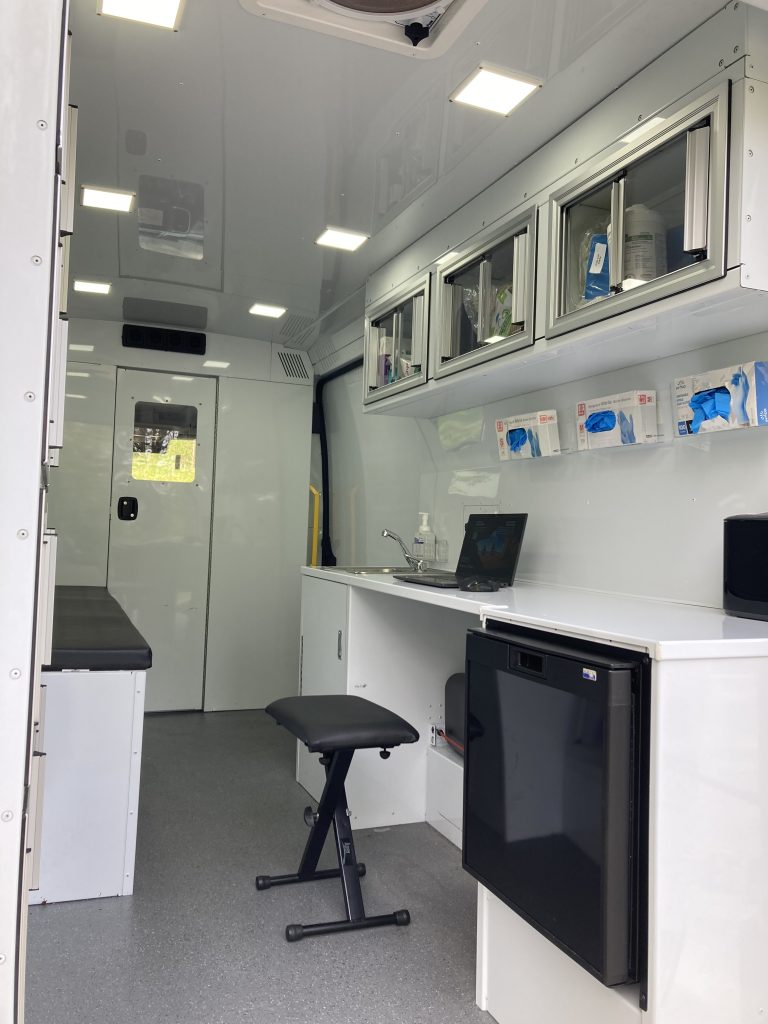Psychiatrist Dr. Ijaz Hussain is meeting clients where they are at. Sometimes, it’s via video call or virtual assessment under a bridge.
When you think of a psychiatrist’s office, a mobile van is probably not the first thing that comes to mind. However, that is where Dr. Ijaz Hussain often provides psychiatric assessments virtually to clients of the Integrated Homelessness Action Response Team (IHART.)
The IHART team conducts client intake in advance, gathering the pertinent information a psychiatrist would normally ask during their first visit. With formalities out of the way, the psychiatric assessment occurs in the IHART team’s mobile van or wherever the client is comfortable connecting virtually. “IHART does a tremendous job gaining the trust of clients, providing initial care, and connecting them to the services they need,” says Dr. Hussain. “This allows me to focus solely on the client and let them tell me their story.”

Dr. Hussain recalls the case of a man who had been living under a bridge for five years. He presented to the emergency department on several occasions. His parents also called the police, seeking help for their son. “A nurse flagged that this was a mental health issue,” says Dr. Hussain. The Tri Cities/New Westminster IHART team found the man in his encampment under a bridge and arranged for him to meet with Dr. Hussain via telephone. “They held up the iPhone, and we had our psychiatric assessment under the bridge. The client was very sick and agreed to a hospital admission. We then connected him to ongoing care in the community. “
On average, the IHART team refers two-to-five clients per week for psychiatric assessments. After an assessment, clients receive a treatment plan, which may include admission to hospital, medication, and connection to local mental health teams in their community. “We have a great success rate because we advocate for the patients and follow through to ensure they are getting the mental health supports they need,” says Dr. Hussain.
Expanding IHART services to include psychiatric care is an example of how we are better meeting client needs through shared services provided by Mental Health and Substance Use and Toxic Drug Response and Priority Population teams.
As for the man who was living under the bridge, “I’m pleased to say that his condition was stabilized and he was reunited with his family,” says Dr. Hussain. “He was quite successful before his mental health deteriorated, and I’m hopeful he will be successful in the future as well.”



